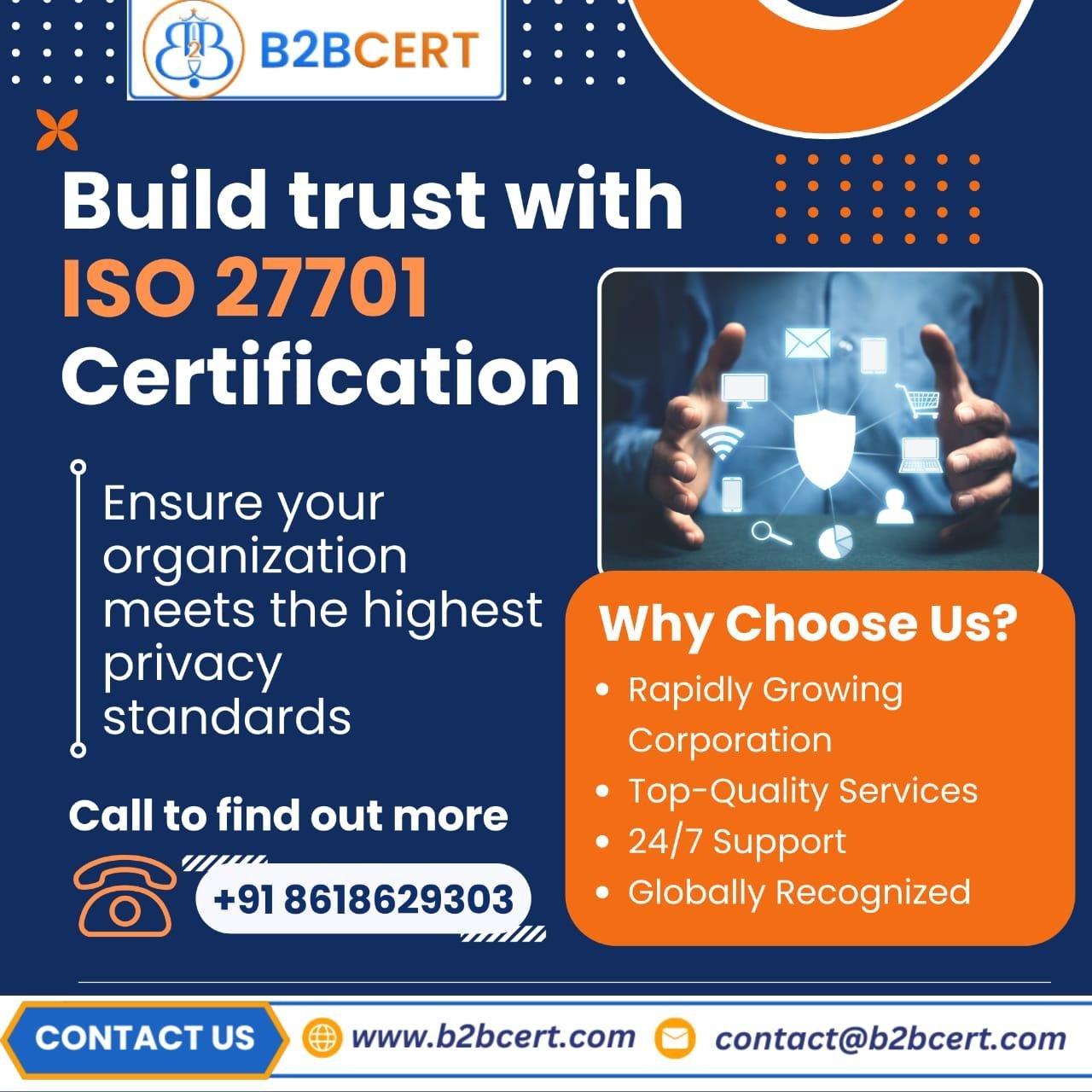How Does ISO 27701 Address Third-Party or Vendor Management of Personal Data?

In today’s data-driven world, organizations often rely on third parties and vendors to process, store, or manage personal data. While outsourcing may bring efficiency and expertise, it also increases privacy risks, especially when sensitive information is shared with external partners. This is where ISO 27701, the international standard for Privacy Information Management Systems (PIMS), plays a crucial role. It provides structured guidelines to help organizations manage data privacy risks, including those related to third-party relationships.
For businesses seeking ISO 27701 Certification in Bangalore, understanding how the standard addresses vendor and third-party management is vital for building trust, ensuring compliance, and maintaining data security.
The Importance of Vendor and Third-Party Data Management
Third parties such as cloud providers, IT support teams, payment processors, or marketing agencies often handle personal data on behalf of organizations. If these vendors fail to safeguard personal information, the organization that owns the data remains accountable. Regulatory frameworks like GDPR, India’s DPDP Act, and CCPA emphasize that outsourcing does not absolve companies of responsibility for personal data breaches.
This makes vendor and third-party management an essential element of data privacy governance. ISO 27701 Consultants in Bangalore highlight that implementing the standard ensures organizations establish proper contractual, monitoring, and compliance mechanisms with vendors handling personal data.
ISO 27701: A Framework for Third-Party Data Protection
ISO 27701 extends ISO 27001 (Information Security Management System) and ISO 27002 (security controls) with privacy-specific requirements. Its clauses and controls specifically address how organizations should manage relationships with third parties when personal data is involved.
Here’s how ISO 27701 addresses vendor management:
1. Defining Roles and Responsibilities
ISO 27701 distinguishes between two main roles in data processing:
-
Data Controller: The organization that determines why and how personal data is processed.
-
Data Processor: The third party or vendor that processes personal data on behalf of the controller.
The standard requires organizations to clearly define these roles in contracts and agreements. This ensures that responsibilities are unambiguous, reducing the risk of accountability gaps.
2. Due Diligence Before Onboarding Vendors
Before engaging a third-party vendor, organizations must evaluate their ability to protect personal data. This includes assessing security measures, privacy policies, compliance with laws, and certifications.
For example, companies seeking ISO 27701 Services in Bangalore are guided to implement a vendor evaluation checklist that reviews aspects such as:
-
Data handling procedures
-
Encryption and access control mechanisms
-
Breach notification processes
-
Regulatory compliance history
This due diligence step minimizes risks before entering into contracts.
3. Contractual Safeguards
ISO 27701 emphasizes the inclusion of privacy requirements in vendor agreements. Contracts should cover:
-
Specific data protection obligations
-
Clear instructions on data processing purposes
-
Confidentiality clauses
-
Sub-processor management (if the vendor outsources further)
-
Requirements for breach notifications within defined timelines
By embedding these clauses, organizations ensure legal and operational accountability for personal data handled by vendors.
4. Monitoring and Auditing Third Parties
Simply signing contracts is not enough. ISO 27701 requires organizations to continuously monitor and audit third-party compliance. Regular audits, reviews, and risk assessments help ensure vendors uphold the agreed-upon privacy standards.
For businesses undergoing ISO 27701 Certification in Bangalore, this means implementing monitoring mechanisms such as:
-
Periodic compliance reports from vendors
-
Site visits or remote audits
-
Security and privacy incident tracking
-
Performance scorecards to evaluate vendor compliance
5. Managing Cross-Border Data Transfers
Many vendors operate globally, which means personal data may be transferred across jurisdictions with different privacy laws. ISO 27701 provides guidelines to assess legal risks and apply safeguards like standard contractual clauses (SCCs), data localization policies, or encryption methods before international transfers.
This is especially important for organizations that rely on global cloud service providers.
6. Incident Management and Breach Notification
Vendors must promptly notify organizations in case of a data breach. ISO 27701 sets clear expectations for breach reporting, communication protocols, and remediation steps. Organizations should have incident response procedures that include coordination with vendors, ensuring swift action to minimize impact.
7. Continuous Improvement
ISO 27701 encourages organizations to treat vendor management as an ongoing process, not a one-time activity. Periodic risk assessments, feedback loops, and updated contracts help improve data protection practices across the vendor ecosystem.
This aligns with the standard’s broader principle of continual improvement in data privacy and information security.
Benefits of ISO 27701 for Vendor and Third-Party Management
Implementing ISO 27701 offers several advantages:
-
Accountability: Organizations remain compliant with global privacy laws even when outsourcing.
-
Risk Reduction: Identifies and mitigates risks associated with third-party data processing.
-
Trust Building: Enhances credibility with customers and regulators by demonstrating strong privacy practices.
-
Operational Clarity: Contracts and processes become structured and standardized.
-
Competitive Edge: ISO 27701-certified companies gain an advantage in industries where data privacy is a key concern.
ISO 27701 Certification in Bangalore: Why It Matters
Bangalore, often called the "Silicon Valley of India," is home to IT companies, startups, and global outsourcing firms that handle massive amounts of personal data. Obtaining ISO 27701 Certification in Bangalore is a strategic step for businesses aiming to strengthen privacy governance and assure clients about secure vendor management practices.
Working with experienced ISO 27701 Consultants in Bangalore ensures that organizations receive expert guidance in designing, implementing, and auditing vendor management frameworks as per ISO 27701 requirements. Similarly, ISO 27701 Services in Bangalore help organizations with training, gap analysis, documentation, and certification support.
Conclusion
Third-party and vendor relationships bring both opportunities and risks when it comes to personal data management. ISO 27701 provides a robust framework that ensures these relationships are governed by clear policies, strict contracts, ongoing monitoring, and compliance with global privacy regulations.
For organizations in Bangalore, adopting ISO 27701 not only enhances privacy resilience but also boosts reputation, customer confidence, and regulatory compliance. Partnering with expert ISO 27701 Consultants in Bangalore and leveraging professional ISO 27701 Services in Bangalore ensures a smooth path to certification and effective vendor management.



